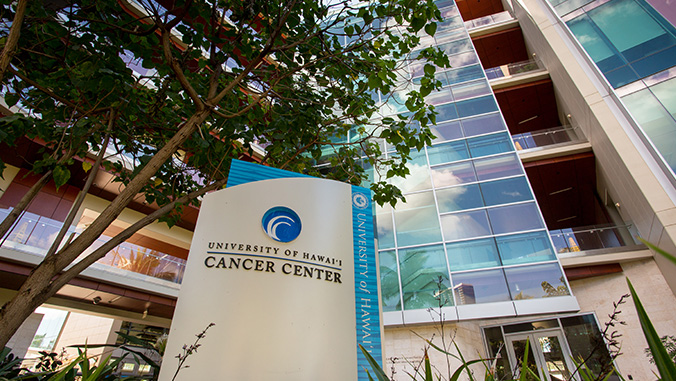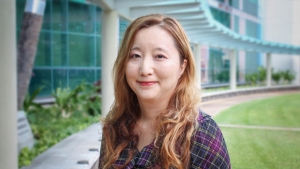
Breast cancer is the most common cancer among women and the second leading cause of cancer death in Hawaiʻi. Residents in rural areas, especially on the neighbor islands, experience disproportionately heavy burdens of cancer, partly due to the lack of access to cancer care and specialty oncology services. Improving access to breast cancer treatment is the aim of new public impact research by the University of Hawaiʻi Cancer Center.
How long does it take for patients on the neighbor islands to get treatment after diagnosis? Researcher Izumi Okado was awarded funding from the Hawaiʻi Community Foundation Robert C. Perry Fund to find out.

This research builds upon a 2020 study conducted by Okado and UH Cancer Center Researcher Brenda Hernandez, which found that neighbor island breast cancer patients experienced substantial delays in starting their cancer treatment during the early years of the COVID-19 pandemic.
Nearly 43% of neighbor island cancer patients travel to Oʻahu for partial or full treatment. This creates additional barriers such as being treated in a timely manner; increased costs, including inter-island transportation; extended time away from family; and higher demand for time and energy—all of which may create unique challenges for neighbor island patients seeking necessary care.
“Delays in starting initial treatment for breast cancer are linked to worse survival outcomes,” said Okado. “It is important to understand issues underlying treatment delays for neighbor island women with breast cancer and develop strategies to address timely access to care for rural Hawaiʻi residents with breast cancer.”
Okado and fellow UH Cancer Center research investigators Jeffrey Berenberg, Hernandez, Lenora Loo and Christa Braun-Inglis hope to design multi-level interventions to improve time to treatment for breast cancer patients on the neighbor islands.
“Our team also hopes to foster inter-island collaborations with patients, providers, community partners and UH Cancer Center researchers to improve time to treatment for breast cancer patients,” said Okado. “Encompassing all resources across Hawaiʻi are needed to achieve this goal.”
Outcomes from this study may reduce burdens related to rural cancer care delivery and address access issues and other factors contributing to cancer health disparities.

